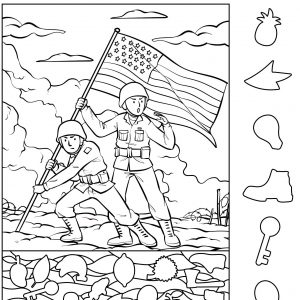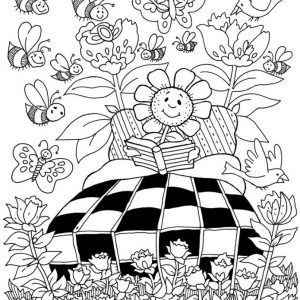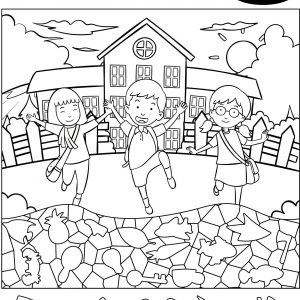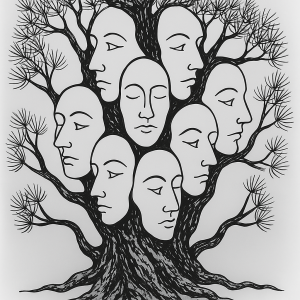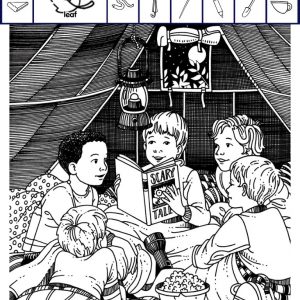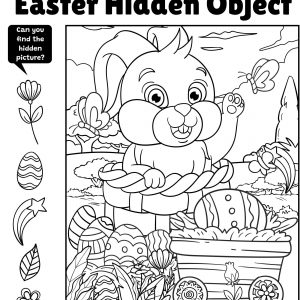The Mystery of Many Faces: A Hidden Optical Illusion That Challenges Your Perception
At first glance, this fascinating image appears to be a simple drawing of a woman’s face. But as your eyes linger, something curious begins to unfold — multiple faces start emerging from the outlines, hidden cleverly within the composition. This captivating piece of art isn’t just a visual delight; it’s a brain teaser designed to test how sharp your perception truly is. So, how many faces can you find?
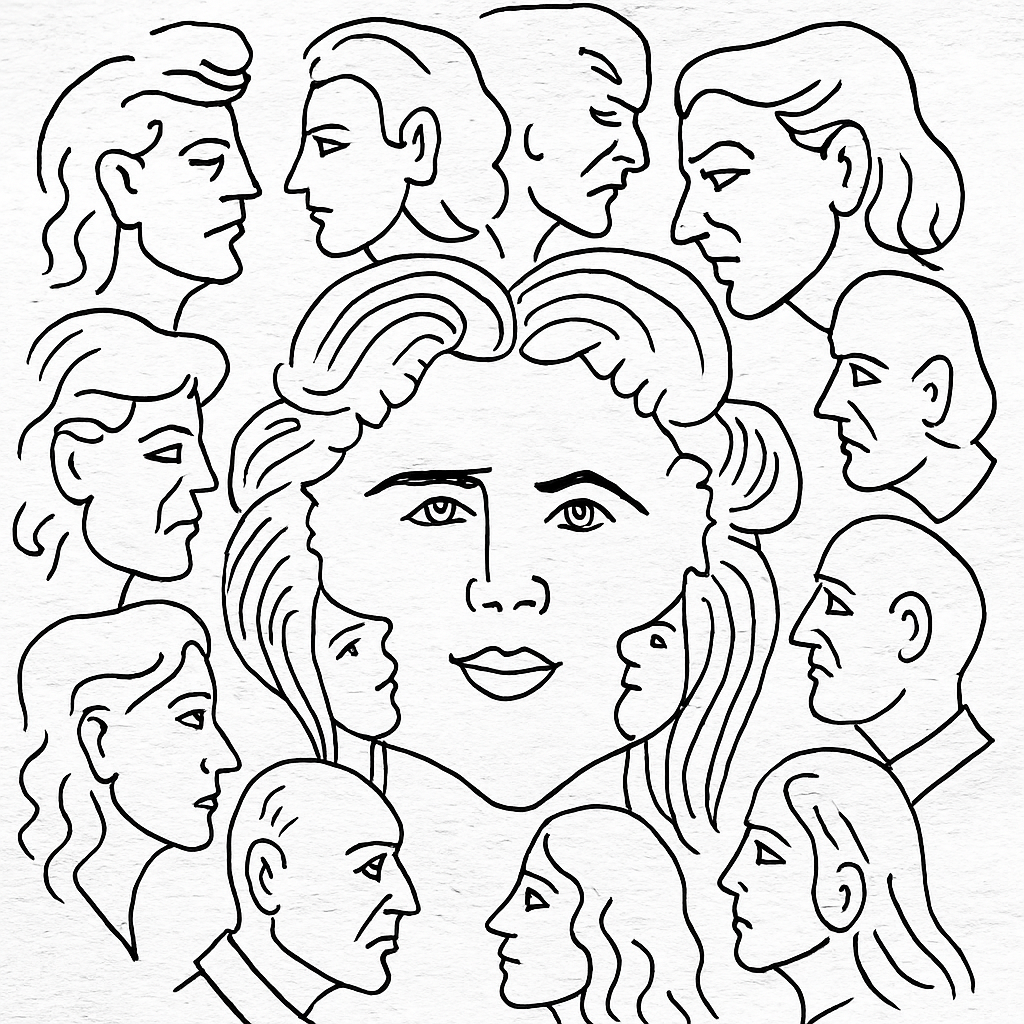
A Visual Puzzle That Plays with Your Mind
This artwork belongs to a special category of illusions known as hidden face puzzles — drawings that challenge your ability to see beyond the obvious. The main, central figure is instantly recognizable — a serene woman with soft features and elegant hair. But look closer, and you’ll notice that her face is actually formed by the contours of other smaller faces.
Each line, curve, and shadow serves a dual purpose — forming one image while concealing another. What appears to be a simple hairstyle might hide the profile of an older man. A jawline might double as the nose of another face. The more you look, the more you discover.
This visual trickery is not just entertaining — it’s a clever study in perception, showing how our brains interpret patterns and fill in gaps based on context.
Why Our Brains Love Optical Illusions
Ever wondered why these kinds of puzzles are so irresistible? It’s all about how our brains process visual information. Humans are naturally wired to recognize faces — a trait known as pareidolia. It’s the reason we spot faces in clouds, rock formations, or even electrical outlets.
When you look at this image, your brain tries to make sense of every curve and contour, instantly matching familiar patterns to facial features. The illusion works because the artist understands this instinct and uses it against you — blending faces seamlessly into one another, forcing your mind to constantly reinterpret what it sees.
It’s like a mental game of hide and seek — and your brain is both the seeker and the tricked player.

Counting the Hidden Faces: A Challenge for Keen Eyes
Here’s where the fun begins. How many faces can you find in this mesmerizing illustration? Most people spot around eight to ten on their first try, but sharper eyes might find more.
The large, central face of the woman is the easiest to identify — she dominates the composition. But look at the edges of her hair, the curves of her cheeks, and the spaces around her. You’ll begin to see profiles — men, women, and even older figures with distinct expressions.
Every new discovery feels like a small victory, each hidden face a reward for your attention to detail. This isn’t just a test of eyesight — it’s a test of patience, focus, and observation.
So, what’s your number?
The Artistic Genius Behind Hidden Faces
Artists who create illusions like this are true masters of composition. They understand both art and psychology — how light, line, and proportion can influence what we perceive.
By overlapping multiple faces into one seamless image, they blend realism with surrealism, creating something that feels both familiar and mysterious. The image draws you in, challenging you to question what’s real and what’s imagined.
The best part? Every person who looks at the image experiences it differently. Some might see the central woman first, while others immediately notice the surrounding profiles. That’s the beauty of perceptual art — it’s not just about what’s drawn, but how it’s seen.

Hidden Object Art: A Blend of Creativity and Cognitive Play
This image fits perfectly into the broader world of hidden object puzzles — artworks designed to engage both your creativity and intellect. These kinds of puzzles aren’t just for kids; they’re valuable tools for adults too, helping improve focus, memory, and problem-solving skills.
When you actively search for hidden shapes, faces, or objects, your brain strengthens its visual processing abilities. It’s like taking your mind to the gym — each discovery is a mental rep that boosts concentration and attention to detail.
Plus, let’s be honest — it’s just plain fun. Who doesn’t enjoy the satisfaction of spotting something others might have missed?
How to Spot Hidden Faces More Effectively
If you’re up for the challenge and want to train your eyes to catch even the subtlest details, here are a few tried-and-true tips:
- Take your time. Don’t rush the process. Let your eyes wander naturally across the image.
- Change your perspective. Sometimes tilting your head or viewing the picture from a different angle helps new shapes emerge.
- Focus on negative space. The empty areas between lines often hide the cleverest details.
- Step back. Oddly enough, viewing the image from a distance can reveal faces hidden within larger shapes.
- Relax your gaze. The more you strain to find something, the less likely you are to see it. Let your brain do the work subconsciously.
With a bit of practice, you’ll start noticing faces you never saw before — a truly satisfying experience for any puzzle enthusiast.

What Hidden Faces Reveal About Perception
Psychologists often use visual illusions like this to study how humans process imagery. These puzzles highlight the difference between seeing and perceiving.
When you first glance at the image, your brain locks onto the most prominent feature — the woman’s face. But as you focus longer, your perception shifts, and your brain starts noticing alternative interpretations. This phenomenon is known as multistable perception — your brain switches between multiple possible ways to see the same visual data.
It’s a powerful reminder that reality is often subjective. What one person sees immediately might take another a minute to find. It’s a fascinating reflection of how we interpret the world around us.
The Beauty of Seeing Beyond the Obvious
Ultimately, this image is more than a clever optical illusion — it’s a lesson in mindfulness. It teaches us to slow down and look closer, to realize that what we see at first glance might not be the full story.
In life, just like in art, the truth often hides in the details. Sometimes, all it takes is a second look to uncover a whole new perspective.
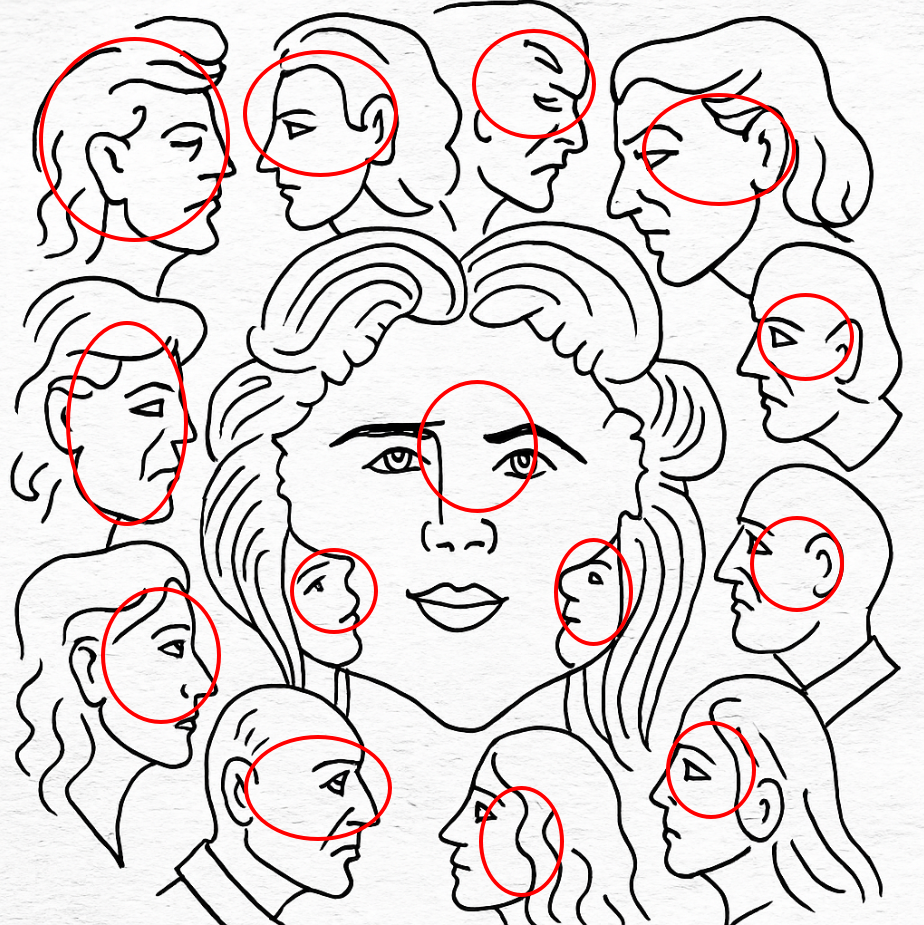
Conclusion: A Puzzle for the Curious Mind
This “many faces” illusion isn’t just a drawing; it’s a mental adventure. It challenges you to question your perception, trust your instincts, and look deeper than the surface. Every hidden face you uncover feels like a tiny discovery, a moment of clarity in the beautiful chaos of lines.
So, next time you come across an image like this, don’t rush past it. Pause. Observe. Let your eyes and mind work together. Because sometimes, the most fascinating things are hidden in plain sight — waiting patiently for you to truly see them.
